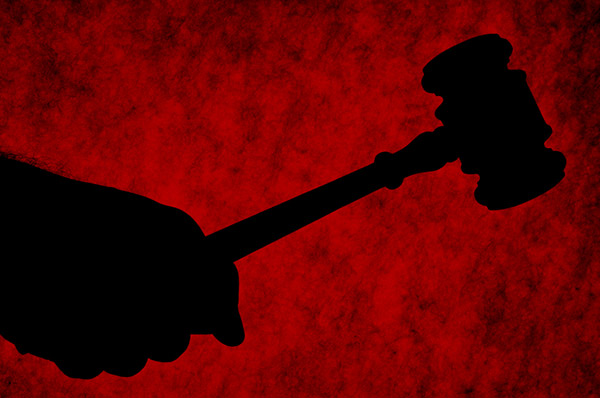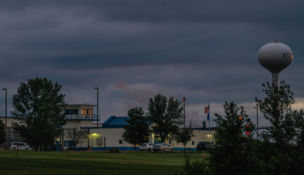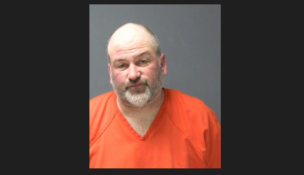Patent attorneys try to keep pace, land large verdicts in Western District
By: Eric Heisig//October 7, 2014//
Patent attorneys try to keep pace, land large verdicts in Western District
By: Eric Heisig//October 7, 2014//
A cottage industry has developed around the so-called “rocket docket” of the Western District of Wisconsin, the speed of which has attracted plaintiffs in patent cases.
The district is known for its quick work, ensuring cases filed there are disposed of at a faster pace than in other jurisdictions.
“People chose to file here because of the speed,” Peter Oppeneer, Western District clerk of court and magistrate judge, said. “It became a profitable business for them.”
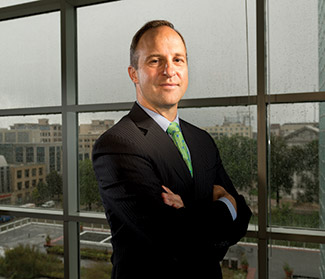
But defense attorneys who handle patent cases say the fast pace can be a disadvantage. While plaintiffs often have everything sorted out before filing, defendants are left scrambling to gather documents for discovery.
“Defendants are trying to catch up for the rest of the case,” said John Scheller, a patent attorney at Michael Best & Friedrich LLP, Milwaukee.
That has not stopped patent litigation from becoming big business, however, in Wisconsin and the rest of the country. According to a 2013 study from PricewaterhouseCoopers LLP, the number of cases filed nationally has risen steadily each year. In 2008, fewer than 3,000 patent lawsuits were filed nationally, according to the study. In 2013, nearly 6,500 patent lawsuits were filed.
Part of the reason for the boom is a nationwide increase in the amount of money juries are awarding at patent trials. According to a July report by California legal analytics group Lex Machina, “total and median damages awards have been increasing [since about 1999], though not at steady rates.”
Though few patent cases make it to trial and involve damage awards, according to the report, those that do make taking such cases more enticing.
In Wisconsin, two such cases in recent years, resulted in the combined largest median damages awards for lost profits in the nation, according to the Lex Machina study. Juries awarded plaintiffs $52 million in Promega Corp. et al v. Life Technologies Corp. and $24 million in Riddell Inc. v. Schutt Sports Inc. The Promega verdict was overturned and is awaiting an appeals court’s decision.
Lured by the potential for such large verdicts, litigators in the early 1990s started turning to patent cases as another source of revenue, Kali Murray, Marquette Law School associate professor, said. And in the past seven years, she said, students with engineering backgrounds started going to law school specifically to practice as patent litigators or in front of the U.S. Patent and Trademark Office.
The result, Murray said, is a market that “has become much more sophisticated.” Historically, she said, patent cases played out behind closed doors and often ended with an amicable settlement so as not to reveal trade secrets. But the influx of savvy litigators has led to more litigation and, as a result, judges who are increasingly adept at presiding over the often-complicated cases.
And in jurisdictions such as the Western District of Wisconsin, where brisk dispatch of cases has become the norm, the defense is further on its heels.
“When we get a client sued in the Western District … we have to get on top of the issues in the case,” Scheller said. “You really have to be very, very active in working with your clients. It is a very tight time frame. You don’t really have time to think about things.”
By the numbers
Nearly 6,500
patent lawsuits filed nationwide in 2013
Less than 3,000
patent lawsuits filed nationwide in 2008
SOURCE: PricewaterhouseCoopers LLP
The district began building its reputation a few decades ago, when the late Judge John Shabaz took the bench. Appointed by President Ronald Reagan in 1981, Shabaz made it clear he wanted cases resolved quickly, arguing it should not take two to three years for a case to get to trial.
Generally, that meant there were very few deadline extensions given for discovery or responding to motions.
For patent cases in particular, Shabaz stopped conducting Markman hearings, which are held early on in a case and essentially let a judge examine how the case was constructed. Preparation for those hearings can take months.
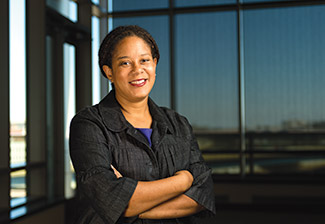
Oppeneer, who clerked for Shabaz from 1987 until he stopped taking cases in 2008, said there was initial resistance from attorneys thrown off by the change in pace, but the local patent bar eventually embraced the shift.
The rest of the judges in the district soon followed Shabaz’s lead, said Western District Senior Judge Barbara Crabb, who was appointed by President Jimmy Carter in 1979.
“Judge Shabaz really showed us all how to try cases and get people back on with their lives,” Crabb said. “He was a model for all of us in that respect. I think, even too, for the state courts in Madison. They realized that they could start imposing more rigid rules and requirements in front of them. He sort of set the pattern.”
Over time, that briskness has led to more patent litigation in the district, which outpaces its more populous neighbor to the east. As of Sept. 25, the Western District had overseen 437 patent cases since 2000, compared to the 394 handled by the Milwaukee-based Eastern District, according to online court records.
For attorneys such as Aaron Olejniczak, a patent attorney with Andrus Intellectual Property Law LLP, Milwaukee, who represents companies that can bring claims in any federal court in the country, it can be a boon to be so close to a favorable jurisdiction.
In 2009, for example, when Douglas Dynamics LLC was going to sue Buyer Products Co. over selling snowplow accessories that infringed on his client’s copyright, Olejniczak and his fellow attorneys had a wide range of options. The company is registered in Delaware, and the case could be filed in any district that gets snow.
It came down to travel and expenses. Flying to Delaware would be costly, while driving to Madison, where Olejniczak’s client was likely to get speedy resolution, was not.
Though business is booming, Crabb said the resulting industry of patent lawyers working in the Western District is not on her mind when she moves cases along quickly.
“It’s certainly not our job to improve the economic climate of the Western District of Wisconsin,” she said, “but if that happens, it’s certainly not what we had in mind, and I doubt that it will last.” Follow @eheisigWLJ
Legal News
- Wisconsin Supreme Court tacks on addition months to already suspended lawyer
- Supreme Court: Abortion protester’s First Amendment rights violated
- These doctors were censured. Wisconsin’s prisons hired them anyway
- Ruling reinstates lawsuit over ‘Black Lives Matter’ school posters
- Wisconsin Supreme Court to consider whether 175-year-old law bans abortion
- Wisconsin man facing bestiality and felony bail jumping charges
- Waukesha County woman indicted in National Health Care Fraud Law Enforcement Action
- Man sentenced to 15 months for fraud involving luxury vehicles
- Wisconsin Department of Justice Fire Marshal investigating fire that killed six
- Ozaukee County first responders save family of three, father and son on Milwaukee River
- Supreme Court sends Trump immunity case back to lower court, dimming chance of trial before election
- Brewers have American Family Field escalators inspected after malfunction results in 11 injuries
Case Digests
- Termination of Parental Rights
- First Amendment Rights
- Termination of Parental Rights
- Late Filing
- Real Estate-Attorney Fees
- Ineffective Assistance of Counsel
- Variance-Interpretation of Zoning Ordinances
- Sentencing
- Fourteenth Amendment’s Due Process Clause-Jury Instructions
- Unlawful Collection Practices-Evidence
- Sentencing-Vindictiveness
- Prisoner Grievances-Exhaustion of Administrative Remedies






